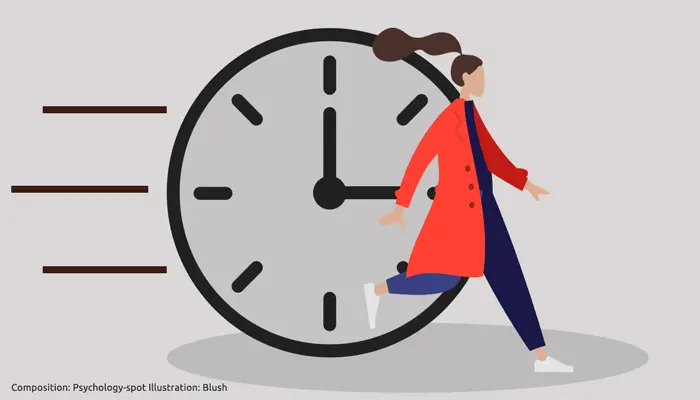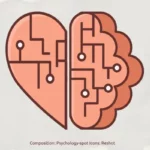
“People live for the present, in a hurry and in an irresponsible way: and that’s what they call ‘freedom'”, wrote Friedrich Nietzsche at the end of the 19th century. If the philosopher had witnessed the contemporary haste, he probably would have said that we are crazy and to each of us would have said: “you have to find yourself”, and he would have retired to live in the forest, like Thoreau, to recover the necessary calm that demand reflection and introspection.
The truth is that haste has become a condition sine qua non of modernity, so that our lives often go through a frenzy of supposedly unstoppable, inescapable and inalienable activities. In that world, making a pause is a luxury. Delay, a virtue lost in the recesses of memory. And while we focus our attention on doing, we forget about being.
Haste takes us away from ourselves
The speed with which we live is nothing more than an illusion based on the belief that it saves us time when, in fact, hurry and speed accelerate it. We live in a state of “Violent and complex stimulation of the senses, which makes us progressively less sensitive and, thus, more in need of an even more violent stimulation. We long for distraction, a panorama of visions, sounds, emotions and excitations in which as many things as possible must be piled up in the shortest possible time […] And despite the nervous tension, we are convinced that sleeping is a waste of valuable time and we continue to pursue those fantasies until late at night”, wrote Alan Watts.
We do not realize that, while we run from one place to another, we lose our lives. So we fall into a contradiction: the more we pretend to cling to life through acceleration, the more it escapes us. Victims of the hurry, we do not have time to look inside, we strive to work in automatic mode and do everything. And that way of living becomes a habit so ingrained that we soon disconnect from our “ego”.
Nietzsche summed it up brilliantly: “Haste is universal because everyone is fleeing from himself”. Any attempt to reconnect, driven by calm and delay, frightens us, so we seek refuge in rush, invent new things to do, new commitments to fulfill, new projects in which to enroll, with the hope that they return us to the state of preconscious sleepiness, because we do not know what we are going to find in that exercise of introspection, we do not know if we like the person we have become. And that scares us. A lot!
Introspection demands delay
It is not easy to unlearn some of the habits we have developed. Victims of impatience, consumed by the incessant ticking of the clock, we have learned to fill our agenda and be proud of it. We condense experiences in the shortest possible time to do more, as if life were summarized in a competition in which who completes more tasks wins.
However, if we stop for just a second and think it through, the haste in which we live almost never responds to really important and urgent things, but is due to the requirements of a way of living that tries by all means to keep us distracted and occupied as long as possible. The current haste is to fill our lives with febrile activities and speed, so that there is no time left to face the real issues, the essential.
What is the antidote?
Nietzsche, who came to describe the rush as “indecorous”, pointed out the essential pillars to lay the foundations that allow us to live more calmly and fully, turning our own lives into a work of art that is enjoyed with care and slowness.
In “The Twilight of the Idols” he said: “You have to learn to see and you have to learn to think […] Learning to see involves accustoming the eye to calmness, to patience, to let things come to us ; learn to postpone the judgment, to surround and cover the particular case from all sides”.
Nietzsche explained that we must learn “Not to respond immediately to a stimulus, but to control the instincts that raise obstacles, that isolate us”, be able to postpone decisions and actions. On the opposite end, he located those who were incapable of resisting a stimulus, those who reacted and followed the impulses, considering that this rush to respond “Is a symptom of illness, decay and exhaustion”.
With these lines Nietzsche invites us to make the necessary pauses to reflect, in a calm way, allowing reality to be revealed little by little, being aware that reason demands delay while rush works on the basis of prejudices and preconceived ideas.
Although fast thinking can be adaptive in certain circumstances, the lack of reflection and calm leads us to irrationality and to make bad decisions. Precisely for this reason, slowness can become tremendously subversive in today’s world: we need to go more slowly in order to live, to be able to think, to be able to decide for ourselves what we want – and what we do not want.
It is in those moments of calm and patience that the sense of life emerges. That “Let things come to us” to which Nietzsche refers is a precious interval of time between the fact and our reaction, between thought and act, a kind of “emptiness” that can be filled unexpectedly with full existence. So, and only then, we can make peace with ourselves. We will learn to enjoy the company of that “ego” we had neglected and we will no longer have the need to run away from ourselves.
Source:
Nietzsche, F. (2001) El crepúsculo de los ídolos. Madrid: Alianza Editorial.



